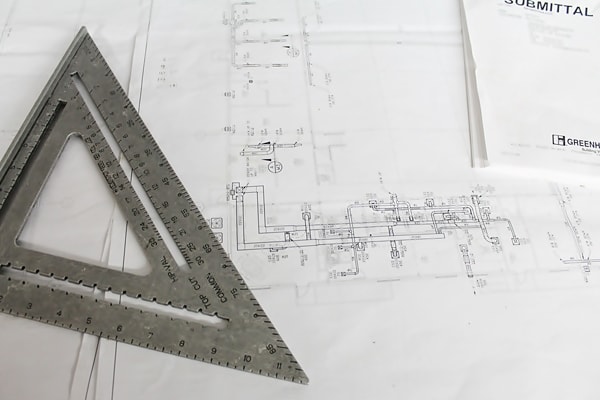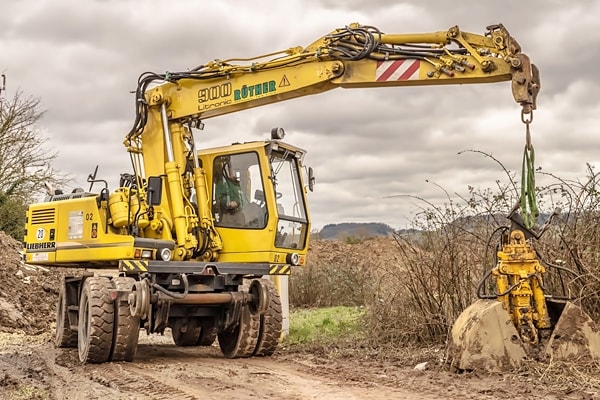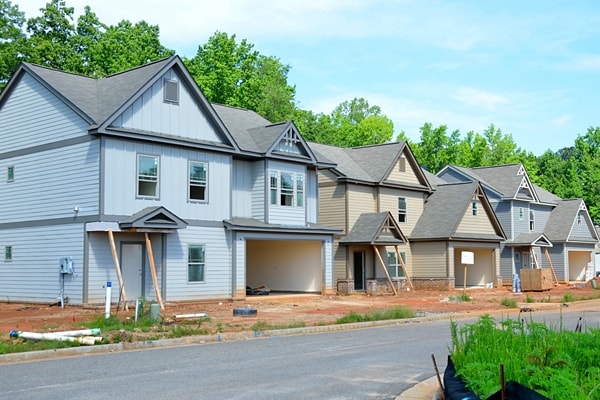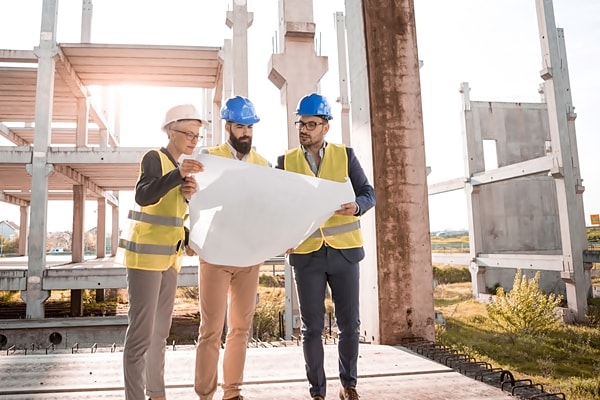Secure Funding for Your Real Estate Project:
Land Development Financing
Secure Funding for Your Real Estate Project
Our primary focus is on providing construction mortgage solutions for land development projects. With our competitive commercial loan rates, you can access the necessary funds at favorable terms, ensuring a smooth and successful development process.
When it comes to real estate capital, we’ve got you covered. Our team of experienced professionals will work closely with you to understand the intricacies of your project and devise a financing plan that aligns with your goals. Whether you’re a seasoned developer or just starting in the industry, we have the expertise to guide you through the financing process.
We specialize in construction financing and have strong relationships with reputable lenders in Ontario. Our network of commercial lenders in Ontario enables us to offer you a wide range of financing options tailored to your specific requirements. From multi-family financing to development loans, we have the resources to support your project every step of the way.
Contact Us
Contact us discuss financing for your development project.Are you looking to embark on a land development project and in need of financing? Look no further! Our comprehensive land development financing solutions are designed to help you secure the funding you need to bring your real estate project to life.
At REICO, we understand the unique challenges that come with land development. From acquiring the land to obtaining permits and overseeing construction, every step requires substantial financial resources. That’s why we offer tailored land development financing options to meet your specific needs.
When you choose our land development financing services, you gain access to a vast array of financing programs and institutions in Canada. Our commercial real estate finance options are designed to accommodate various project sizes and scopes. Whether you’re developing residential properties, commercial complexes, or mixed-use developments, we can help you secure the necessary funds.
Our team of experienced commercial mortgage brokers will assist you in navigating the complex landscape of construction financing rates, terms, and requirements. We’ll provide guidance on the government financing programs available for development in Canada, ensuring you leverage all available resources to make your project a success.
Don’t let funding be a roadblock to your land development dreams. Contact us today and explore the possibilities of our land development financing solutions. Our dedicated team is ready to assist you with expert advice, personalized service, and a commitment to your success.
A Guide to Commercial Land Development:
Land Development Financing
Steps to Develop Land for Commercial Purposes
Are you considering developing land for commercial purposes? Securing the right financing is crucial for the success of your project. In this guide, we provide a brief overview of the steps involved in commercial land development and important factors to consider before applying for financing.
Preliminary Research: Start by conducting thorough research on the market demand, location feasibility, and zoning regulations. Determine the potential profitability of your project and assess any potential risks or challenges that may arise during the development process.
Land Acquisition: Once you have identified a suitable site, initiate the process of acquiring the land. Work with real estate agents or property developers to negotiate the purchase price and secure the necessary legal documentation.
Due Diligence: Before proceeding with the land purchase, conduct due diligence to assess any potential issues such as environmental concerns, title encumbrances, or easements that could affect the development. Engage professionals like surveyors, environmental consultants, and lawyers to ensure a comprehensive evaluation.
Design and Planning: Collaborate with architects, engineers, and urban planners to develop a detailed design and layout for your commercial project. Consider factors such as building size, infrastructure requirements, parking facilities, and accessibility to ensure optimal functionality and appeal to potential tenants or buyers.
Permitting and Approvals: Obtain the necessary permits and approvals from local authorities, including zoning permits, environmental clearances, and building permits. Complying with all regulatory requirements is essential to avoid delays or penalties during the development process.
Construction Financing: At this stage, secure construction financing to cover the costs of building infrastructure, site preparation, and construction materials. Commercial mortgage loans specifically tailored for construction projects can provide the necessary capital to proceed.
Construction and Development: Engage qualified contractors and oversee the construction process. Regularly monitor the progress, ensuring adherence to quality standards, timelines, and budgetary constraints. Effective project management is essential to ensure a successful development.
Marketing and Lease/Sale: Once construction is complete, develop a marketing strategy to attract potential tenants or buyers. Collaborate with commercial real estate brokers to showcase the unique features and benefits of your project. Conduct negotiations and finalize lease agreements or sales contracts.
Before applying for land development financing, consider the following factors:
Financial Feasibility: Evaluate the financial viability of your project by analyzing potential returns, projected cash flows, and estimated costs. Lenders will assess your project’s profitability and risk profile before approving financing.
Collateral and Equity: Prepare to provide collateral, such as the land itself or additional assets, as security for the loan. Lenders typically require a certain percentage of equity investment from the developer.
Creditworthiness: Maintain a good credit history and ensure your personal and business finances are in order. Lenders will evaluate your creditworthiness to determine the level of risk associated with lending to you.
Documentation: Gather all necessary documents, including project plans, permits, financial statements, and feasibility studies, to support your financing application. Prepare a comprehensive business plan outlining your development strategy and expected outcomes.
By following these steps and considering the key factors mentioned, you can navigate the process of commercial land development and secure the financing needed to bring your project to fruition.
Commercial Land Development Financing - Phase 1: Property Acquisition
Phase 1 of commercial land development involves the purchase or lease of the property. Whether you decide to buy or lease, it’s essential to assess the location, size, zoning regulations, and potential for future growth. Consult with real estate agents, conduct negotiations, and secure the property with legal documentation to move forward with your development plans.
During Phase 1 of commercial land development, the focus is on property purchase or lease and the crucial due-diligence period. It is recommended to hire an engineering firm to conduct an environmental review. Phase 1 involves reviewing the property’s history and any past environmental issues, while Phase 2 ensures the absence of contamination in the soil and groundwater, both on-site and from adjacent properties. These steps are vital to finalize the land sale or establish a baseline for the lease term.

Phase 2: Due Diligence Period
Phase 2 of commercial land development is the due diligence period, a critical stage in the development process. During this phase, thorough investigations and assessments are conducted to ensure the property’s suitability for the intended development. Key activities include:
Environmental Assessments: Engage environmental consultants to conduct comprehensive Phase 1 and Phase 2 environmental reviews. These assessments evaluate potential contamination risks from the soil and groundwater, ensuring compliance with environmental regulations.
Geotechnical Studies: Hire geotechnical engineers to assess the soil and subsurface conditions. These studies help identify any geological challenges, stability concerns, or other factors that could impact the development process.
Surveys and Legal Compliance: Conduct property surveys to confirm boundaries, easements, and rights-of-way. Verify legal compliance with zoning regulations, building codes, and other applicable laws.
Infrastructure and Utilities: Evaluate the availability and capacity of necessary infrastructure and utilities such as water, sewerage, electricity, and telecommunications. Assess any requirements for upgrades or connections to support the planned development.
Title and Legal Review: Engage legal professionals to review property titles, deeds, and ownership documentation. Confirm that there are no outstanding liens, encumbrances, or legal issues that could impede the development process.
Financial Analysis: Conduct a thorough financial analysis, considering project costs, potential returns, and estimated timelines. Assess the feasibility of the development based on market conditions, demand, and projected revenue.
Risk Assessment and Mitigation: Identify potential risks and challenges associated with the development, such as environmental, legal, financial, or market-related factors. Develop strategies to mitigate these risks and ensure a smooth development process.
The due diligence period allows developers to gather essential information and assess the viability and risks of the project. It plays a crucial role in informing financing decisions, securing necessary permits, and setting the foundation for successful land development.
Phase 2 also focuses on several key activities need to be undertaken to ensure the project’s compliance and feasibility. These activities include:
Zoning Verification: Contact the local by-law or zoning officer at the City to verify the zoning regulations for the intended use of the property. Request an authorization letter from the city to confirm compliance with current zoning by-laws. It’s important to ensure that the intended use aligns with the zoning requirements.
Additional Permits and Approvals: Depending on the nature of your business, you may require additional permits, licenses, and approvals. For example, fuel stations, storage facilities, or bulk stations may require licenses and approvals from organizations such as the Technical Standards and Safety Authority (TSSA) and the Ministry of the Environment (MOE).
Variance or Rezoning Application: If the existing zoning does not comply with the intended use, you may need to apply for a variance or rezoning. However, it’s important to note that this process can be both costly and time-consuming, depending on factors such as the current zoning regulations, the City’s procedures, and the nature of the intended use.
Navigating the zoning verification process and obtaining the necessary permits and approvals are essential steps during the due diligence period. Compliance with zoning regulations ensures the legality and suitability of your development plans.
Commercial Land Development Financing - Phase 3: Verification & Development Process
Phase 3 of commercial land development encompasses the verification and development process. Here are the essential steps involved:
Initial Consultation: Meet with the city planning department to review the preliminary layout and gather their perspectives on services (Hydro, Gas, water, sewer), storm water management, and traffic patterns. A traffic study may be required for high-volume properties near major intersections.
Development and Building Permits: Determine the requirements and costs for obtaining development permits and building permits. If the property is near a highway off-ramp, consultation with the Ministry of Transportation (MTO) for Highway Corridor management application may be necessary.
Compliance with Municipal and MTO Requirements: Ensure compliance with both the city’s municipal requirements and any specific requirements set by the MTO if applicable to your property’s location.
Design and Application Process: Initiate the development design and applications process, including obtaining a current topographical survey, development design permit, storm water management report, geotechnical report, building permit, and construction tender package.
Construction Management: Oversee the construction process, including managing contractors and ensuring adherence to engineering conformances certificates and as-built drawings.
Building Permit Closure and Occupancy Permit: Obtain the necessary approvals, including closing the building permit and obtaining the occupancy permit from the city.
Financing:Provide the documentation outlined above to an engineering firm for financing purposes, as they can provide the required services.
This phase also encompasses several key activities necessary to move the project forward:
Engineering and Design: Engage engineering professionals to create detailed plans and designs for the development, ensuring compliance with regulations and industry standards.
Cost Estimation: Conduct a comprehensive cost estimation, considering construction materials, labor, equipment, and other expenses associated with the development.
Contractor Selection: Select qualified contractors through a thorough evaluation process. Consider factors such as experience, reputation, and competitive pricing.
Permit Acquisition: Secure all necessary permits and approvals from relevant authorities to ensure legal compliance throughout the development process.
Construction and Project Management: Oversee the construction activities, ensuring adherence to timelines, budgets, and quality standards. Effective project management is crucial for successful execution.
Inspections and Quality Control: Perform regular inspections to ensure compliance with design specifications, building codes, and safety regulations. Implement quality control measures to maintain high standards.
Stakeholder Communication: Maintain open communication with stakeholders, including investors, contractors, and local authorities, to ensure alignment and address any concerns promptly.
Progress Monitoring: Continuously monitor the progress of the development, tracking milestones and addressing any issues that may arise along the way.
By efficiently managing the verification and development process, you can bring your commercial land development project to fruition while maintaining compliance, quality, and timely execution.
By following these steps, you can successfully navigate the verification and development process, ensuring compliance, efficient construction, and the necessary permits for your commercial land development project.
Done! An engineering firm can provide all of the aforementioned services, so all you have to do is contact a company to do the construction. At which point you forward the aforementioned documentation to us for financing purposes.






